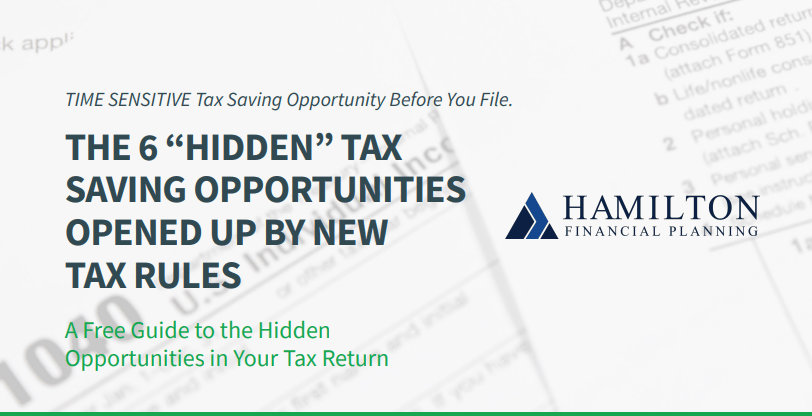
By Scott Hamilton, CFP®
Many people believe the most successful investors are those who meticulously analyze trends to pinpoint the perfect moments to buy or sell. Another misconception is that without this approach, one can only expect average results and miss out on real success.
As a CERTIFIED FINANCIAL PLANNER® professional with over 20 years in the industry, I can assure you that this isn’t true. Success in investing doesn’t require outsmarting the market—in fact, constantly trying to time it can sometimes do more harm than good. Here are three reasons why.
Table of Contents
You Can’t Outsmart the Market
Outsmarting the market usually involves attempting to “buy low and sell high” by analyzing current market trends for inefficiencies or volatility indicators. This is a common strategy used by both portfolio managers and everyday investors alike. It may work sometimes, but it is far from perfect.
In fact, a new SPIVA report shows that 68% of active fund managers underperformed their benchmarks in 2022. The long-term results of this report are even more significant: 84% of active fund managers underperform after 5 years and 95% underperform after 20 years.
Not only does outsmarting the market involve guessing when to buy in, but you then have to guess when to sell. That means for every gain, you have to be right twice to make timing the market worth it. Unfortunately, market moves can only truly be spotted in hindsight, and outsmarting the market is often closer to playing the lottery than it is to an educated guess.
You can be a successful investor simply by relying on time in the market instead of timing the market. The longer you stay invested in a particular asset, the more likely you are to experience growth over the long term. Considering the S&P 500 Index has averaged around 9.4% for the last 50 years, this strategy doesn’t seem all that bad. Buying and holding often results in much lower stress and a more secure investment experience for the average investor over the long term.
Riding the Wave Is Less Expensive
Trying to outsmart the market has been around just as long as the market itself, and though it rarely works, many people keep trying. Not only are you less likely to outperform the market through market timing, you could further reduce your returns depending on how often you trade. That’s because outsmarting the market can be expensive.
Depending on your account type, asset class, and where you are executing your trades, you will likely be charged for every purchase and sale you make, and that’s on top of any taxes owed on gains. The more frequently you trade, the higher your transaction costs will be.
If you held the assets for less than a year, your gain will be taxed as ordinary income at your marginal tax rate, which can be as high as 37%.
Even if you find an actively managed fund that is able to beat the market, they have to do so by a wide enough margin to cover its higher costs and more. As such, even some funds that beat the market end up with lower returns once fees are taken into account.
Staying Invested Generally Produces Better Returns
Many investors will sell their positions during times of volatility in order to avoid or reduce a loss. But how do they know when to buy back in? This is one of the most difficult aspects of outsmarting the market, and it often leads to much less growth than staying invested the whole time would have produced.
For instance, a recent study by Schwab Center for Financial Research found that bad market timing is worse than investing immediately, regardless of the market conditions at the time of investing. This indicates that even in market downturns, or just before a downturn, investors who invest immediately and remain invested will be better off than those who stay on the sidelines or attempt to time the market.
The time value of money tells us that a dollar today is worth more than a dollar tomorrow, and this is certainly the case when it comes to investing. The longer you are invested, the more likely you are to ride out the fluctuations of the day-to-day market and experience growth.
Is Your Investment Strategy Built for Success?
The market can be unpredictable, often surprising even the most experienced investors. Trying to pick a “winning” strategy that never dips is a bit like betting on the winning lottery numbers—nearly impossible. The key to success lies in a strategy that filters out the noise and remains focused on long-term growth.
At Hamilton Financial Planning, LLC, we’re here to help align your finances with your vision and values, so you can live the life you want. Together, we can create a resilient, long-term investment approach to help weather market ups and downs. Schedule a complimentary get-acquainted meeting online or reach out to us at 512-261-0808 or scott@hamiltonfinancialplanning.com.
About Scott
Scott Hamilton is founder and chief financial officer at Hamilton Financial Planning, a wealth management firm that specializes in providing comprehensive financial planning for retirees. With over 20 years of experience in the financial industry, and having completed over 250 financial plans for retirees across all industries, but mostly the oil and gas industry, Scott is passionate about providing his clients with the tools and insight they need to achieve their financial goals. He has a Bachelor of Business Administration in finance from Texas State University and an MBA in international finance from Pepperdine University. Scott has also been happily married to his wife, Gayle, for over 25 years. To learn more about Scott, connect with him on LinkedIn.

